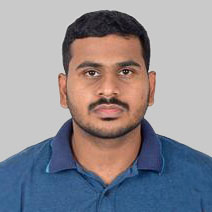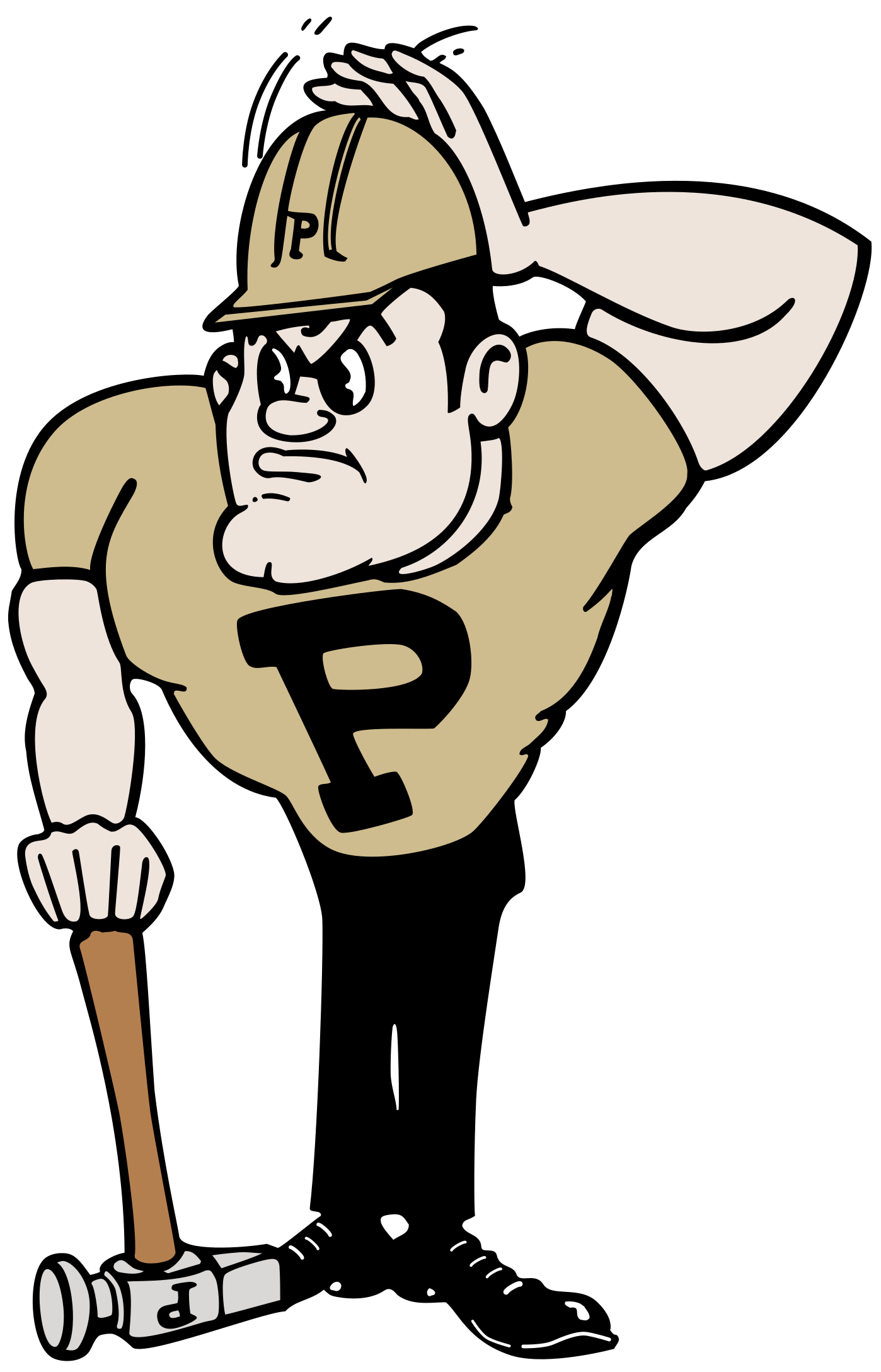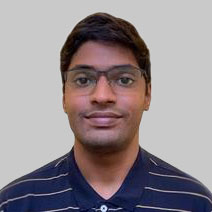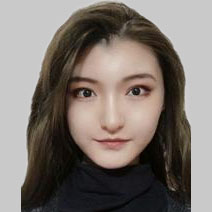About who we are

Mission Statement
The Transport: Modeling, Numerics & Theory Laboratory (TMNT-Lab) conducts curiosity-driven scientific research at the intersection of engineering, mathematics, and physics. We leverage advanced mathematics with state-of-the-art simulations to study flowing materials (fluids, solids, gases, or anything in between), rationalize experiments, and solve fundamental (basic science) problems. Our aim is to make a lasting impact on the understanding of transport phenomena, as a means of effecting mixing or for mitigating separation, across disciplines.
Director
Postdocs
PhD Students

Shrihari D. Pande
ME PhD Student
Previously: MSME, Purdue University, 2023, Thesis: "Reduced Modelling of Oscillatory Flows in Compliant Conduits at the Microscale".
Previously: Purdue BSME, independent study Fall 2020, Spring 2021.
Research topic: oscillatory flows in the soft hydraulics context.
MS Thesis & Graduate independent study students
None currently.Visiting scholars
None currently.Prof. Christov is willing to sponsor outstanding scholars for external and institutional fellowships to allow them to visit Purdue and work in the TMNT-Lab. If interested, contact Prof. Christov by email well ahead of any application deadlines.
Undergraduate independent study students
Group alumni (alphabetically by last name )
-
Ben N. Aaron (Swarthmore College, SURF 2025 participant)
Research topic: failure modes of thin film peeling under peridynamics and cohesive zone models.
-
Dr. Vishal Anand (Purdue PhD, defended Spring 2020)
Dissertation: "Microscale Fluid–Structure Interactions between Viscous Internal Flows and Elastic Structures".
First position after graduation: Postdoc, Purdue University.
-
Luis Felipe Andrade Ribeiro de Oliveira (UNICAMP, PONTES Fall 2024 participant)
Research topic: weakly inertial flow in deformable channels, reduced model vs. FEniCS simulations.
-
Ahmad Faraz Badar (Aligarh Muslim University, S. N. Bose Fellow, Summer 2019)
Research topic: OpenFOAM simulation of gravity-driven particle-laden flows in shaped channels.
First position after graduation: Graduate studies in Mechanical Engineering at University of Wisconsin–Madison.
-
Dr. Evgeniy Boyko (Postdoc, Fall 2020–Fall 2021)
Research topic: microscale flows of non-Newtonian fluids.
Joint appointment in the Davidson School of Chemical Engineering with Prof. Osman Basaran.First position after Purdue: tenure-track Assistant Professor, Faculty of Mechanical Engineering, Technion — Israel Institute of Technology.
-
Ruihuan Cai (Zhejiang University, China Scholarship Council visiting scholar for academic year 2019–2020)
Background: PhD student in Chemical Machinery and Equipment at Zhejiang University, Hangzhou, China.
Research topic: discrete element method (DEM) simulation of diffusion of ellipsoidal granular particles in shear flow.
-
Sibi Chandrasekar (Purdue BSME, independent study Fall 2018)
Independent study topic: interface motion by phase change and diffusion.
First position after graduation: MS studies in Mechanical Engineering at Purdue University.
-
Shayak Chatterjee (Purdue BSME, ME Summer Projects 2021, independent study Fall 2021)
Independent study topic: perturbations and computations in mechanical engineering.
First position after graduation: MS studies in Mechanical Engineering at Purdue University.
-
Juan Andrés Gil Duque (Universidad Nacional de Colombia in Medellín, UREP-C 2025-1 participant)
Research topic: Fluid–structure interactions in nonaxisymmetric perivascular spaces.
-
Adin Freese (Purdue BSME, independent study Fall 2023)
Research topic: physics-informed machine learning in fluid mechanics.
-
Aditya Avinash Ghodgaonkar (Purdue, MSME thesis, defended Spring 2019)
Thesis: "Numerical Methods for Studying Self-similar Propagation of Viscous Gravity Currents".
First position after graduation: PhD studies in Mechanical Engineering at the Massachusetts Institute of Technology.
-
Sonia Gupta (Purdue MSAA, independent study Fall 2020)
Research topic: computational modeling of gas-liquid flows in packed-bed reactors using OpenFOAM.
Co-advised with Prof. Amy Marconnet and also part of the MTEC Lab in the School of Mechanical Engineering.First position after graduation: Senior Hardware Development Engineer, Nokia.
-
Mitchell Howe (Purdue BSME, independent study Fall 2021, Spring 2022)
Research topic: particle-laden low-Reynolds-number gravity currents.
First position after graduation: MS studies in Mechanical Engineering at Purdue University.
-
Tanmay C. Inamdar (Purdue, MSME thesis, defended Spring 2018)
Thesis: "Unsteady Fluid–structure Interactions in Soft-walled Microchannels".
First position after graduation: Engineer, Cummins Inc.
-
Srinath Kulkarni (Purdue MSAA, independent study Spring 2021–Spring 2023)
Research topic: longitudinal wave propagation in periodic structures with fluid–structure interactions.
Co-advised with Prof. Fabio Semperlotti and also part of the SHM&D Lab in the School of Mechanical Engineering.First position after graduation: Senior Engineering, Cummins, Inc.
-
Zihao Lin (Purdue BSME, SURF 2018 participant, independent study Fall 2018, Spring 2019)
Research topic: computational analysis of the stability of the interface between two immiscible liquids during injection into tapered Hele-Shaw cells.
First position after graduation: Graduate studies in Mechanical Engineering at Johns Hopkins University.
-
Dr. Daihui Lu (Purdue PhD, defended Fall 2021)
Dissertation: "Modeling of Interfacial Instability, Conductivity and Particle Migration in Confined Flows".
First position after graduation: Research Scientist, Meta.
-
Megan Madden (Purdue BSME, ME Summer Projects 2020, independent study Spring 2021)
Research topic: computational modeling of hemodynamics and biomechanics of aneurysms and model calibration using murine models.
-
Jalen Magee (Savannah State University, SURF 2023 participant)
Research topic: physics-informed machine learning in fluid mechanics.
-
Akash Mattupalli (Purdue BSME, ME Summer Projects 2021, independent study Fall 2023, Spring 2024)
Research topic: physics-informed machine learning and Bayesian inference in fluid mechanics.
First position after graduation: CMP Equipment Engineer, Taiwan Semiconductor Manufacturing Company (TSMC).
-
Abbhelash S. Menon (Purdue MSAA, independent study Spring 2020)
Research topic: ANSYS simulations of flows in rectangular microchannels.
-
Julia M. Meyer (Purdue BSME, SURF 2017 participant, independent study Fall 2017, Spring 2018, Fall 2018, Spring 2019)
Research topic: modeling and simulation of dynamics and thermodynamics of coherent structures near phase transitions.
First position after graduation: PhD studies in Mechanical Engineering at Purdue University.
-
Rafael Monteiro Martins Pinheiro (Purdue BS, SURF 2024 participant)
Research topic: reduced modeling of oscillatory flow in soft hydraulic systems.
-
Sanjan C. Muchandimath (IIT Madras, PURE 2019 participant)
Research topic: ANSYS simulations and mathematical modeling of the fluid–structure interaction between a viscous Newtonian fluid and a pre-stretched deformable elastic top wall of a microchannel.
First position after graduation: MS studies in Aerospace Engineering at the University of Michigan.
-
Dr. Federico Municchi (Postdoc, Fall 2017–Fall 2018)
Research topic: computational modeling of multiphase flows and fluid–structure interactions; OpenFOAM solver development.
First position after Purdue: Research Fellow in Applied Mathematics at The University of Nottingham, United Kingdom.
-
Dr. Pranay P. Nagrani (Purdue PhD, defended Spring 2025)
Dissertation: "Thermomechanical Degradation and Rheology Characterization of Thermal Greases".
Co-advised with Prof. Amy Marconnet and also part of the MTEC Lab in the School of Mechanical Engineering.First position after graduation: Thermal Mechanical Packaging Development Engineer, IBM.
Previously: MSME, Purdue University, 2021, Thesis: "Two Fluid Modeling of Heat Transfer in Flows of Dense Suspensions".
Co-advised with Prof. Amy Marconnet and also part of the MTEC Lab in the School of Mechanical Engineering.Previously: S. N. Bose Fellow, Summer 2018.
-
Masashi Nishiguchi (The University of Mount Union, SURF 2019 participant)
Research topic: 1D mathematical and computational models of particle transport in multiphase flows in tight geometries (Hele-Shaw cells).
First position after graduation: Graduate studies in Aeronautics and Astronautics at Purdue University.
-
Zoë Song Penko (University of Alabama at Birmingham, SURF 2018 participant)
Research topic: computational analysis of universality in 1D models of viscous fluid spreading and leveling.
First position after graduation: PhD studies in Aerospace and Mechanical Engineering at The University of Notre Dame.
-
Joshua David John Rathinaraj (IIT Madras, PURE 2018 participant)
Research topic: ANSYS simulation and mathematical modeling of fluid–structure interactions between a power-law fluid and a deformable microchannel with an elastic top wall.
First position after graduation: MS studies in Mechanical Engineering at the Massachusetts Institute of Technology.
-
Adam Reagen (Purdue BSME, independent study Fall 2023)
Research topic: physics-informed machine learning in fluid mechanics.
-
Luke Sanders (Savannah State University, SURF 2023 participant)
Research topic: physics-informed machine learning in fluid mechanics.
-
Sanketh Saravanan (IIT Madras, PURE 2017 participant)
Research topic: ANSYS simulation of fluid–structure interactions in deformable tubes, comparisons with basic theory.
First position after graduation: MS studies in the Management Science & Engineering program at Columbia University.
-
Dr. Tanmay Chandrashekhar Shidhore (Purdue PhD, defended Summer 2022)
Dissertation: "Assessing the Role of Biomechanical Fluid–Structure Interactions in Cerebral Aneurysm Progression via Patient-Specific Computational Models".
Co-advised with Prof. Vitaliy L. Rayz and also part of the CFML in the Weldon School of Biomedical Engineering.First position after graduation: Engineer, MathWorks.
Previously: MSME, Purdue University, 2018, Thesis: "Computational Analysis of Fluid–Structure Interactions in Shallow, Deformable Microchannels".
-
Dr. Kimberly A. Stevens Boster (Lillian Gilbreth Postdoctoral Fellow, Fall 2018–Fall 2020)
Research topic: biomechanics and hemodynamics of cerebral aneurysms and arterovenous malformations, including patient-specific computational modeling.
Joint appointment with Prof. Vitaliy L. Rayz's Cardiovascular Flow Modeling Laboratory in the Weldon School of Biomedical Engineering.First position after Purdue: Postdoc, University of Rochester.
-
Arjun Selvaraj Raveechandiren (Purdue, MSME non-thesis, independent study Spring 2017)
Research topic: fluid–structure interactions between high-speed bubbly flows and pipes, solving the relevant hyperbolic conservation laws with PyClaw.
First position after graduation: Engineer, Cummins Inc.
-
Mengying Wang (Purdue, MSME thesis, defended Spring 2018)
Thesis: "Mixing by Cutting and Shuffling a Line Segment: The Effect of Incorporating Diffusion".
First position after graduation: PhD studies in Mechanical Engineering at Northwestern University.
-
Dr. Xiaojia Wang (Purdue PhD, defended Summer 2022)
Dissertation: "Modeling and Stability of Flows in Compliant Microchannels".
First position after graduation: Postdoctoral Assistant Professor, Department of Mathematics, University of Michigan, Ann Arbor.
-
Mike Xiao (Purdue BSME, SURF 2025 participant)
Research topic: peridynamic thin film peeling.
-
Dr. Jielin Yang (Purdue PhD, defended Spring 2025)
Dissertation: "Computational Methods with Spectral-Like Accuracy: Modeling, Algorithms, and Simulations".
Co-advised with Prof. Steve Dong in the Department of Mathematics.First position after graduation: Postdoctoral Scholar, Department of Applied and Computational Mathematics and Statistics (ACMS), University of Notre Dame.
-
Dr. Zongxin Yu (Purdue PhD, defended Summer 2023)
Dissertation: "Interfacial dynamics of ferrofluids in Hele-Shaw cells".
First position after graduation: Postdoctoral Scholar, Department of Engineering Sciences and Applied Mathematics, Northwestern University.
-
Usamah Zaman (Purdue BSME, independent study Fall 2018)
Independent study topic: ANSYS simulations of fluid–structure interactions of viscous internal flows in deformable conduits.
Note to prospective graduate students
For further information on applying to Purdue and admissions to the ME graduate programs click on the respective links. Admissions are only made by the Graduate School at Purdue on the recommendation of the ME Graduate Admissions Committee. The TMNT-Lab Director does not and cannot admit applicants (nor can the TMNT-Lab Director attempt to sway the admissions committee's decisions, nor will he). Therefore, applications must be sent to the Graduate School and the School of ME at Purdue. No applications should be sent to the TMNT-Lab or its Director. Educational records (transcripts, degree diplomas, etc.) should never be relayed by email because they contain personally identifiable information. Inquiries about the status of an application should be addressed to the latter authorities; the TMNT-Lab Director cannot comment on such matters.
Due to an extreme amount of unsolicited email regarding positions and admissions, at this time, it is the TMNT-Lab policy that only the most urgent and relevant emails can be answered. Apologies in advance to the rest. For example, vague or generic inquiries (e.g., "Are there positions available?") about graduate studies from those who have not even applied to the graduate programs at Purdue (see preceding paragraph) will not be answered due to volume. Emails that do not follow the rules laid out in the preceding paragraph will be marked as spam and not answered.
To receive a reply, you must make a specific inquiry and/or have thoughtful technical questions (e.g., "Prof. Christov: I have read your 2022 review article in JPCM, and I am attempting to use the result in equation (xy) to do [blank], can I ask the following questions ... ?") from those with high academic and research qualifications are most welcome and will be answered with high priority. Additionally, an attempt will be made to address all inquiries from students already enrolled at Purdue (both graduate and undergraduate).
Thank you for your understanding.





